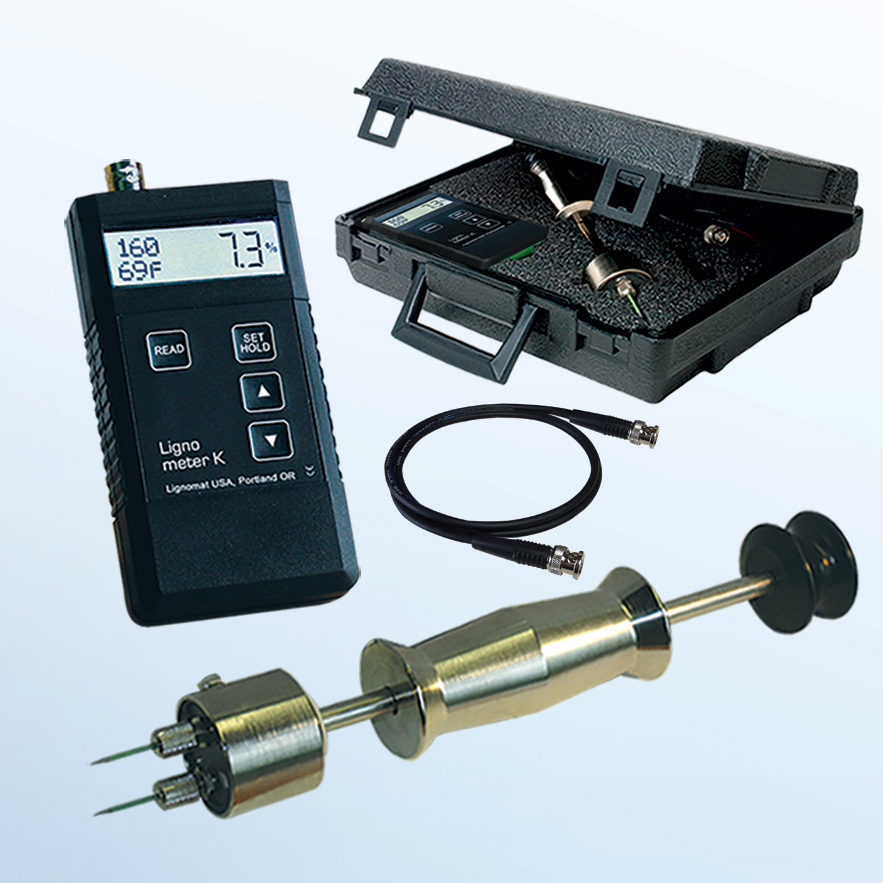The Ultimate Overview to Wetness Meters: A Comprehensive Introduction and Exactly How They Can Save You Cash
In the realm of building upkeep, building, and various sectors, the relevance of precisely measuring dampness levels can not be overemphasized. Wetness meters function as indispensable devices in identifying and checking moisture content in products, helping in preventing pricey damages and making certain the high quality of items. Understanding the nuances of different kinds of wetness meters, their applications, and the potential cost-saving advantages they provide can be a game-changer for companies and specialists alike. Discovering how these tools can not only enhance processes however additionally contribute to monetary cost savings is a trip worth getting started on.
Sorts Of Moisture Meters
Different sorts of dampness meters are available for different applications in different markets. One typical type is the pin-type wetness meter, which measures the electric resistance in between 2 pins inserted into a material. This type appropriates for timber, drywall, and various other structure materials. Pinless wetness meters, on the various other hand, usage electromagnetic sensor plates to scan a larger area without causing damage to the material's surface. Moisture Meter. These meters are suitable for promptly evaluating moisture levels in large areas such as floors and walls.

Infrared wetness meters gauge the thermal residential properties of a material to determine its dampness material non-invasively, making them beneficial for applications where pin or pinless meters may not be suitable. Recognizing the different types of dampness meters readily available can help markets pick the most suitable tool for their details dampness dimension needs.

Advantages of Utilizing Wetness Meters
Wetness meters offer important advantages in accurately keeping track of and evaluating wetness degrees in diverse products and settings. One of the main advantages of using moisture meters is the avoidance of prospective damage caused by excess wetness.
Additionally, using moisture meters can lead to boosted energy effectiveness. In farming settings, moisture meters play a critical duty in optimizing crop returns by enabling farmers to keep track of soil dampness degrees and make notified watering choices.
How to Select the Right Wetness Meter
When selecting a wetness meter, it's necessary to guarantee that the meter is appropriate for the details product you will certainly be screening. Different products have differing electrical buildings that can impact dampness analyses, so choosing a meter designed for your product is vital for precise results. By carefully assessing these factors, you can pick a moisture meter that fulfills your needs and offers precise dampness measurements for your projects.
Appropriate Techniques for Wetness Meter Usage

Price Savings Through Wetness Meter Applications
Exactly how can the calculated use of wetness meters result in substantial expense financial savings across various sectors? Dampness meters play an essential role in price savings by preventing prospective damage and guaranteeing quality control in various markets. In the agriculture market, moisture meters help in figuring out the optimum time for collecting crops, avoiding excess or over-drying wetness that can influence the final item's quality. This specific tracking helps farmers stay clear of unnecessary losses and maximize their return.
Similarly, in building, dampness meters assist avoid pricey damages by identifying wetness degrees in structure products, such as wood or concrete, which can bring about architectural concerns if not attended to without delay. By identifying trouble areas beforehand, contractors can take corrective actions to avoid substantial fixings or substitutes, inevitably conserving money and time.
Additionally, in the food processing sector, dampness meters are essential for keeping an eye on item quality and making sure compliance with safety and security regulations. By accurately determining moisture content in food, producers can prevent putridity, keep quality, and minimize waste, causing considerable expense financial savings. Generally, the calculated application of dampness meters is a beneficial financial investment that can bring about substantial expense reductions and boosted efficiency across various industries.
Conclusion
In conclusion, moisture meters are beneficial tools for determining and spotting dampness levels my explanation in numerous products. By using the right moisture meter and adhering to proper techniques, customers can successfully protect against pricey problems caused by excess wetness.
Dampness meters serve as essential devices in identifying and keeping an eye on moisture content in products, helping in preventing pricey damages and making certain the quality of items. Infrared dampness meters measure the thermal buildings of a product to determine its wetness content non-invasively, making them beneficial for applications where pin or pinless meters might not be suitable.Moisture meters use vital advantages in precisely checking and evaluating moisture degrees in read here diverse products and environments. In farming settings, moisture meters play an important duty in maximizing plant returns by enabling farmers to keep track of soil moisture levels and make informed irrigation decisions.In conclusion, dampness meters are important tools for determining and finding wetness degrees in different materials.
Comments on “Recognizing the Various Kinds Of Moisture Meters and Their Applications”